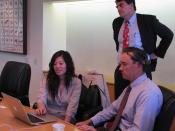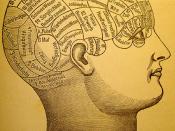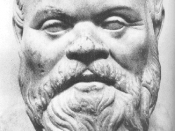In writing A Treatise Concerning the Principle of Human Knowledge George Berkeley presents a very strong philosophical argument. He reasons that nothing in the world, other than the mind, can exist without or independent of the mind. He reasons that things aren't really "things" but that they are more accurately termed ideas. This is clearly a rather large jump away from what is conventionally accepted in the word today and therefore Mr. Berkeley has to very precisely show his logic. While all of his points contribute the argument as a whole there are defiantly some stronger points. It is these stronger points that will be discussed and assessed today. Only through a thorough examination of his reasoning can we assign validity to his argument.
The first really strong argument he sets up takes place in the fourth paragraph of his treatise. There he refers to the fact that when we perceive something it is through the senses.
If I am presented with a table, I am able to perceive that table by seeing it, feeling it and smelling it. Berkeley agrees with all of that and stipulates that most reasonable people would as well. But then he turns from convention and reasons that since the table is only perceived by the senses, which are themselves ideas and exist only in the mind, that the table we perceive can exist only in the mind as well. He writes that since the table is formed from the myriad senses and compiled into a comprehensive picture in the mind, that only the mind table truly exists, or conversely that the "real" table only exists as a part of the mind. This seems to intuitively make sense. Whether the table is really there or not doesn't matter, since we perceive it through sight and...


